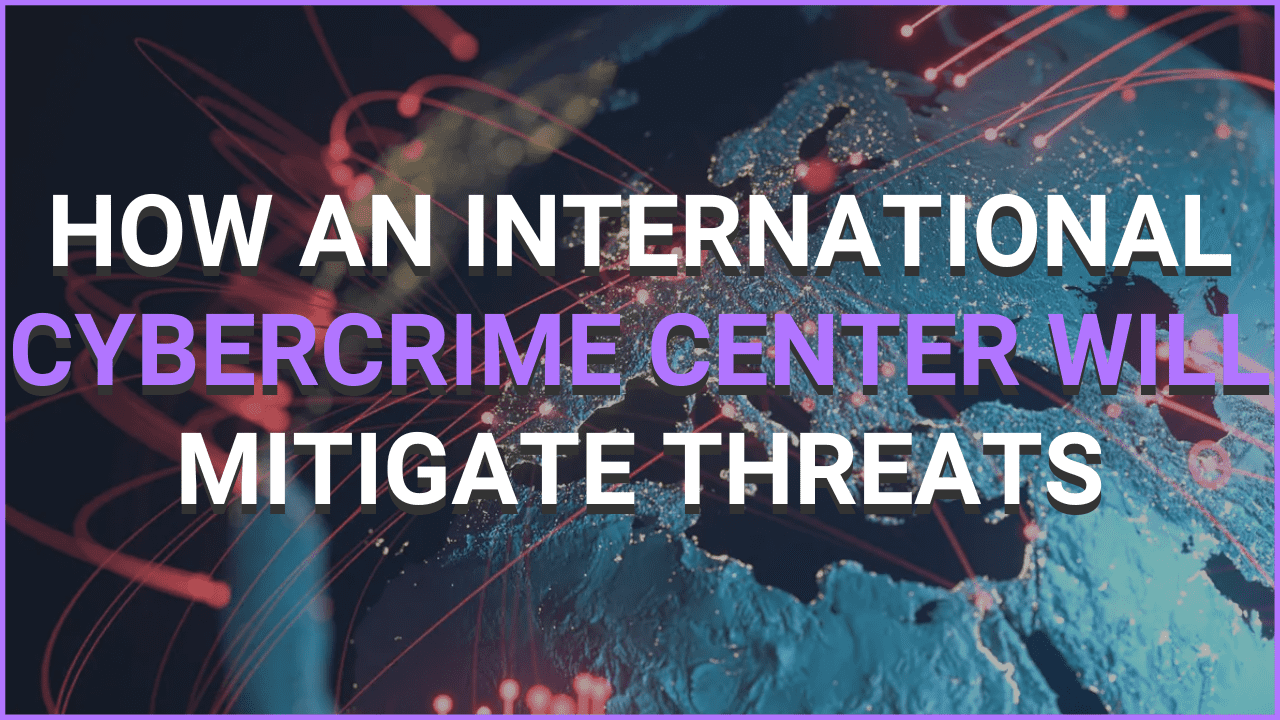Previous

How An International Cybercrime Center Will Mitigate Threats
Learn how PurpleSec’s experts can protect your business against the latest cyber attacks.
Author: Dušan Trojanović / Last Updated: 8/6/2022
Reviewed By: Dalibor Gašić, & Michael Swanagan, CISSP, CISA, CISM
View Our: Editorial Process
Table Of Contents
- Council on Foreign Relations Task Force proposes three pillars to a U.S. foreign policy for cyberspace.
- The era of the global internet is over. The Internet will become more fragmented in years to come.
- Increased digitization increases vulnerability, given that nearly every aspect of business and statecraft is exposed to disruption, theft, or manipulation.
- Task Force suggests the government build a digital trade agreement among trusted partners as well to create an international cybercrime center which will help to mitigate threats.
What Happened?
For many years, this global internet served U.S. interests, and U.S. leaders often called for countries to embrace an open internet or risk being left behind.
But this utopian vision became just that: a vision, not the reality. Instead, over time the internet became less free, more fragmented, and less secure.
Authoritarian regimes have managed to limit its use by those who might weaken their hold and have learned how to use it to further repress would-be or actual opponents.
U.S. policy toward cyberspace and the internet has failed to keep up. The United States desperately needs a new foreign policy that confronts head on the consequences of a fragmented and dangerous internet.
Countries around the world now exert a greater degree of control over the internet, localizing data, blocking and moderating content, and launching political influence campaigns.
Nation-states conduct massive cyber campaigns, and the number of disruptive attacks is growing. Adversaries are making it more difficult for the United States to operate in cyberspace. Parts of the internet are dark marketplaces for vandalism, crime, theft, and extortion.
At the same time, the modern internet remains a backbone for critical civilian infrastructure around the world. It is the main artery of global digital trade.
It has broken barriers for sharing information, supports grassroots organization and marginalized communities, and can still act as a means of dissent under repressive government regimes.
Three Pillars To Foreign Policy Proposed
The Council on Foreign Relations Task Force proposes three pillars to a foreign policy that should guide Washington’s adaptation to today’s more complex, variegated, and dangerous cyber realm.
- Washington should confront reality and consolidate a coalition of allies and friends around a vision of the internet that preserves to the greatest degree possible a trusted, protected international communication platform.
- The United States should balance more targeted diplomatic and economic pressure on adversaries, as well as more disruptive cyber operations, with clear statements about self-imposed restraint on specific types of targets agreed to among U.S. allies.
- The United States needs to put its own proverbial house in order. That requirement calls for Washington to link more cohesively its policy for digital competition with the broader enterprise of national security strategy.
How PurpleSec Helps To Secure Your Organization
Our vulnerability management services and penetration testing services provide a holistic approach to securing what’s most important to you.
Major Findings At A Glance
The major findings of the Council on Foreign Relations Task Force are as follows:
- The era of the global internet is over.
- U.S. policies promoting an open, global internet have failed, and Washington will be unable to stop or reverse the trend toward fragmentation.
- Data is a source of geopolitical power and competition and is seen as central to economic and national security.
- The United States has taken itself out of the game on digital trade, and the continued failure to adopt comprehensive privacy and data protection rules at home undercuts Washington’s ability to lead abroad.
- Increased digitization increases vulnerability, given that nearly every aspect of business and statecraft is exposed to disruption, theft, or manipulation.
- Most cyberattacks that violate sovereignty remain below the threshold for the use of force or armed attack. These breaches are generally used for espionage, political advantage, and international statecraft, with the most damaging tacks undermining trust and confidence in social, political, and economic institutions.
- Cybercrime is a national security risk, and ransomware attacks on hospitals, schools, businesses, and local governments should be seen as such.
- The United States can no longer treat cyber and information operations as two separate domains.
- Artificial intelligence (AI) and other new technologies will increase strategic instability.
- The United States has failed to impose sufficient costs on attackers.

Dušan Trojanović
Dušan is a Senior Security Engineer actively working as a penetration tester in DevSecOps projects. He is also an avid security researcher bringing forward analysis on the latest attacks and techniques.



 HEALTHCARE
HEALTHCARE GOVERNMENT
GOVERNMENT CRYPTO
CRYPTO